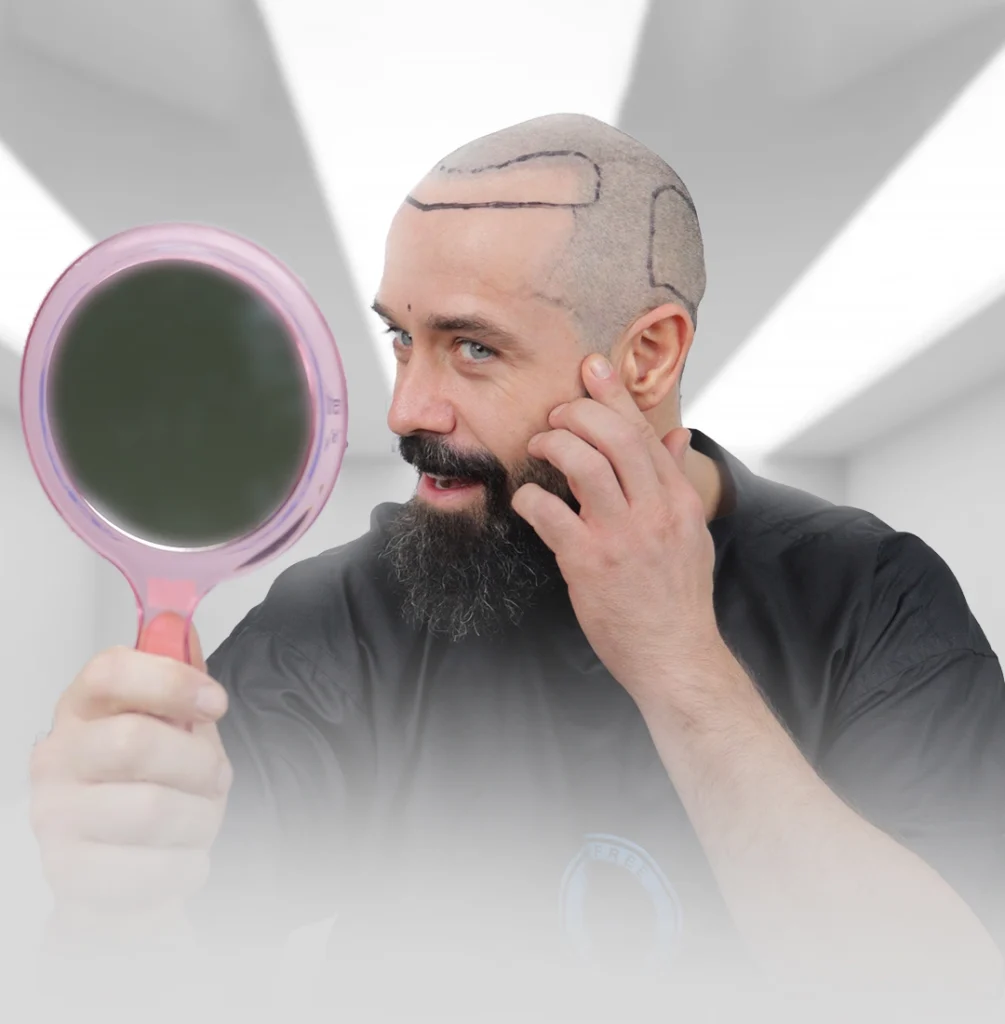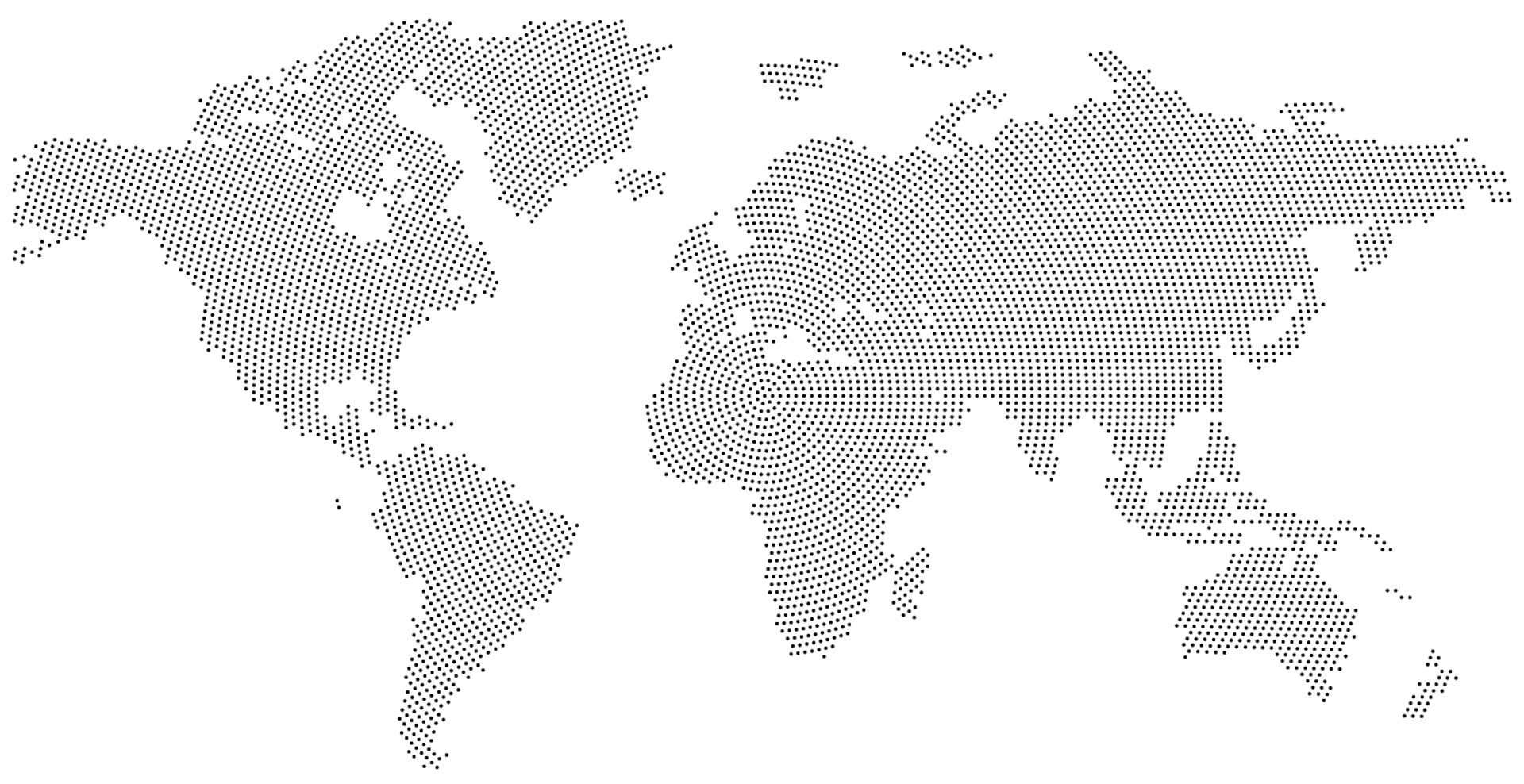Hair loss, or alopecia, affects individuals of all ages and genders. For centuries, healthy hair has been a symbol of charm, beauty, and personal power, particularly for women. Understanding the various types of hair loss is essential for effective management and treatment. Following are main Hair loss types.



Androgenetic alopecia is the most common type of hair loss, affecting more than 50 million men and 30 million women in the United States
TE is one of the most common forms of nonscarring alopecia. It may occur in children or adults, most commonly in females. TE results from an alteration in the physiology of the hair cycle, whereby increased telogen hairs are stimulated to shed at once. A number of endogenous and exogenous inciting factors are associated with the induction of TE. Common examples include serious illness and surgery, childbirth, rapid weight loss, nutritional deficiencies, and drug exposure, in cases Post covid infection, or Typhoid, Dengue fever where very high antibiotics or anti-inflammatory medications have been given for a prolonged period

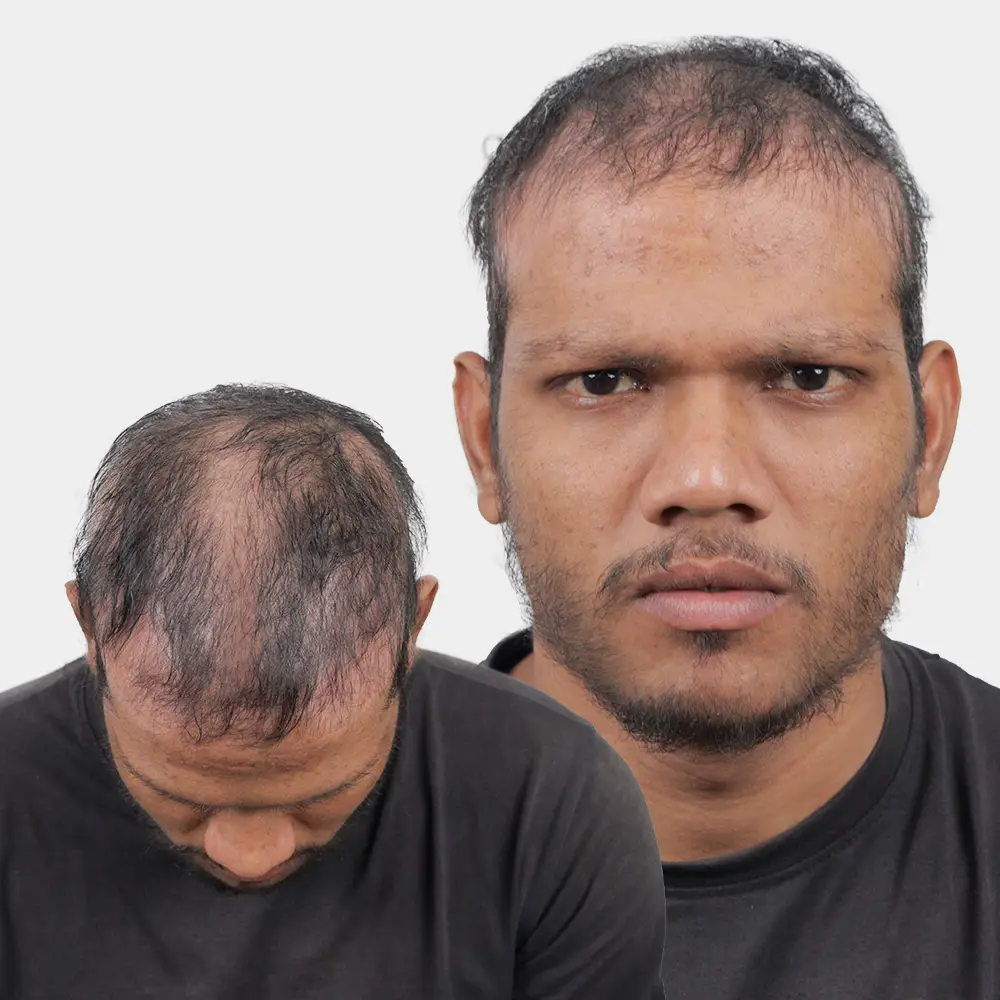
Refers to hair shedding that arises during the anagen or growth stage of the hair cycle. This is in contrast to telogen effluvium or hair shedding that arises during the telogen or resting stage of the hair cycle. Anagen effluvium is due to an acute injury to the hair follicles by an endogenous or exogenous cause, resulting in sudden diffuse shedding of structurally damaged hairs. The alopecia is non-scarring.
It is a chronic immune-mediated disease commonly presenting as acute onset patchy hair loss on the scalp, affecting both sexes and children, adolescents, and adults. Rarely do patients present with total scalp hair loss (alopecia areata totalis) or hair over the entire body (alopecia areata universalis). It happens when a person’s immune system attacks their own hair follicles, leading to hair loss.
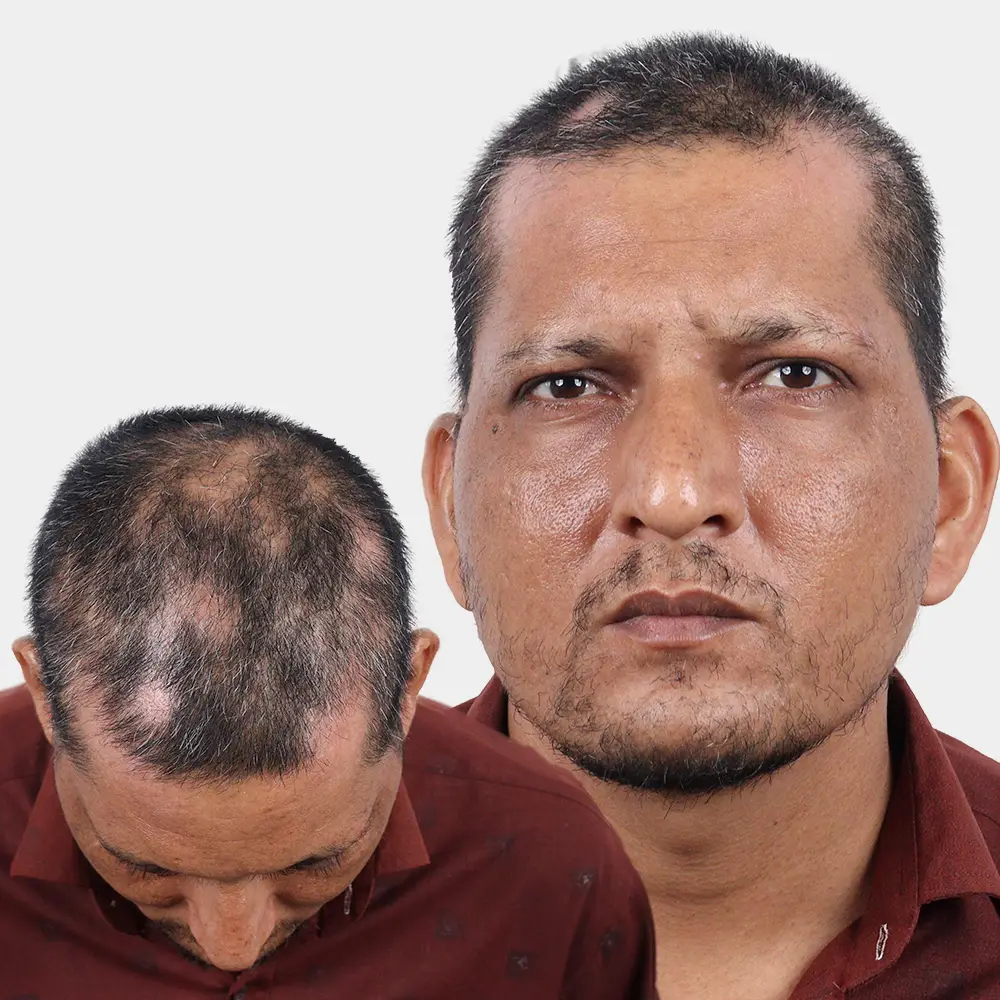
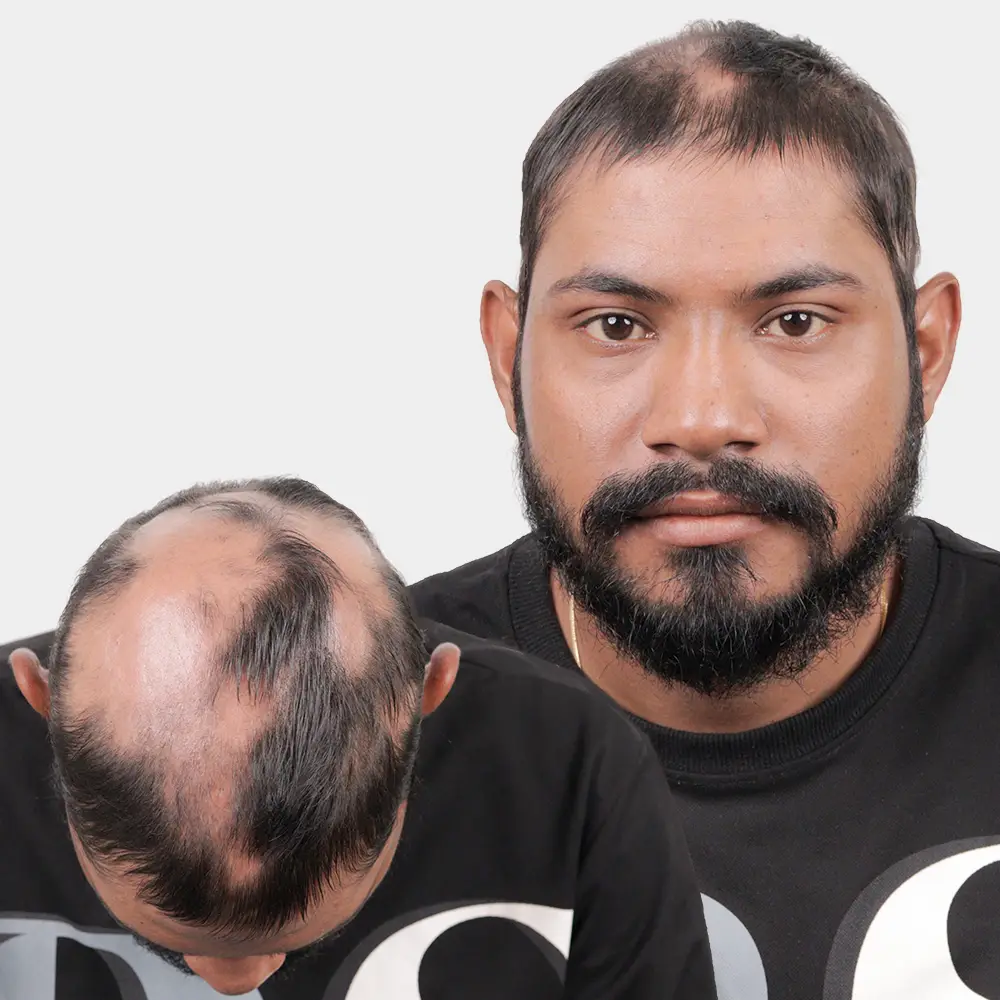
Scarring, or cicatricial alopecia, is an inflammatory condition that destroys hair follicles, causing scarring and permanent hair loss. Types of cicatricial alopecia. Lichen planopilaris (lichen planus follicularis), chronic cutaneous lupus erythematosus, frontal fibrosing alopecia, acne keloidalis nuchae, central centrifugal cicatricial alopecia, and Brocq pseudopelade are lymphocytic forms of alopecia.
Lichen planopilaris is a clinical variant of lichen planus; both conditions can occur simultaneously. Frontal fibrosing alopecia is a variant of lichen planopilaris. The next most common cause of primary cicatricial alopecia.
Nonscarring alopecias include androgenetic alopecia, alopecia areata, telogen effluvium, anagen effluvium, traction alopecia, and trichotillomania among others.
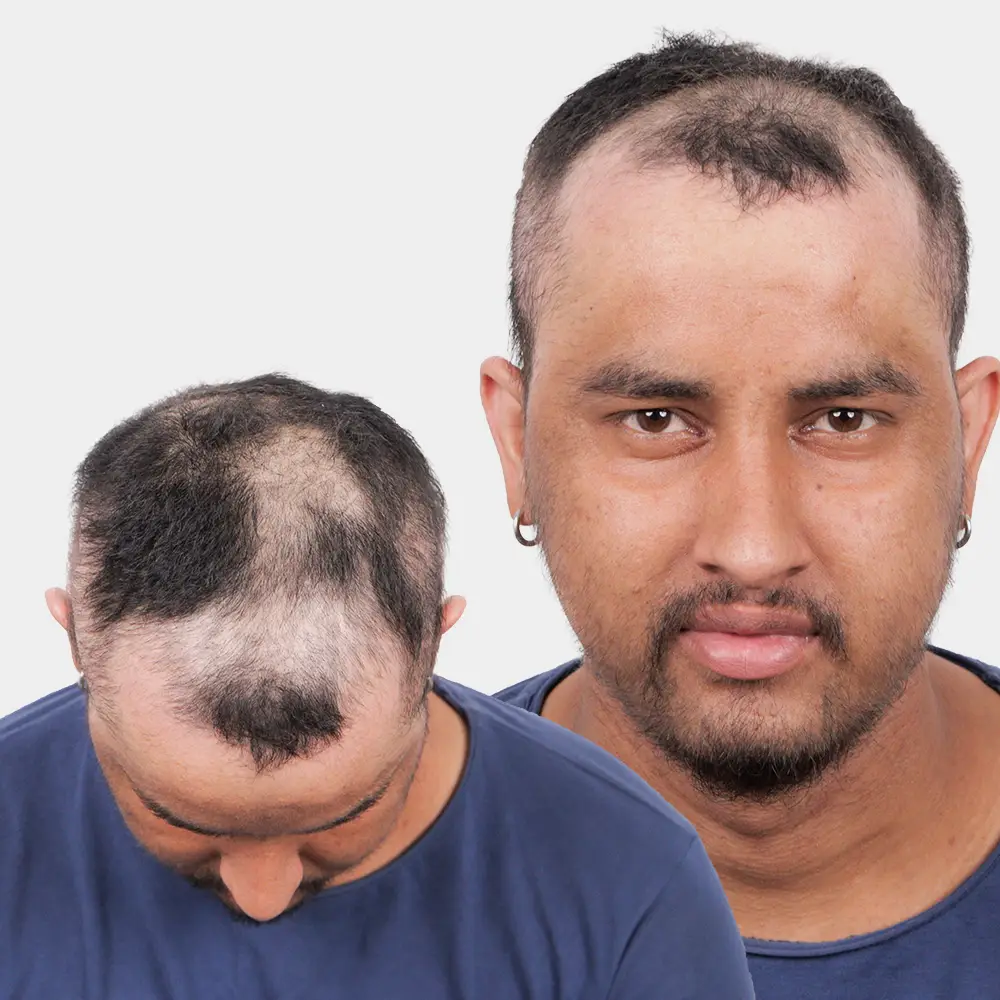
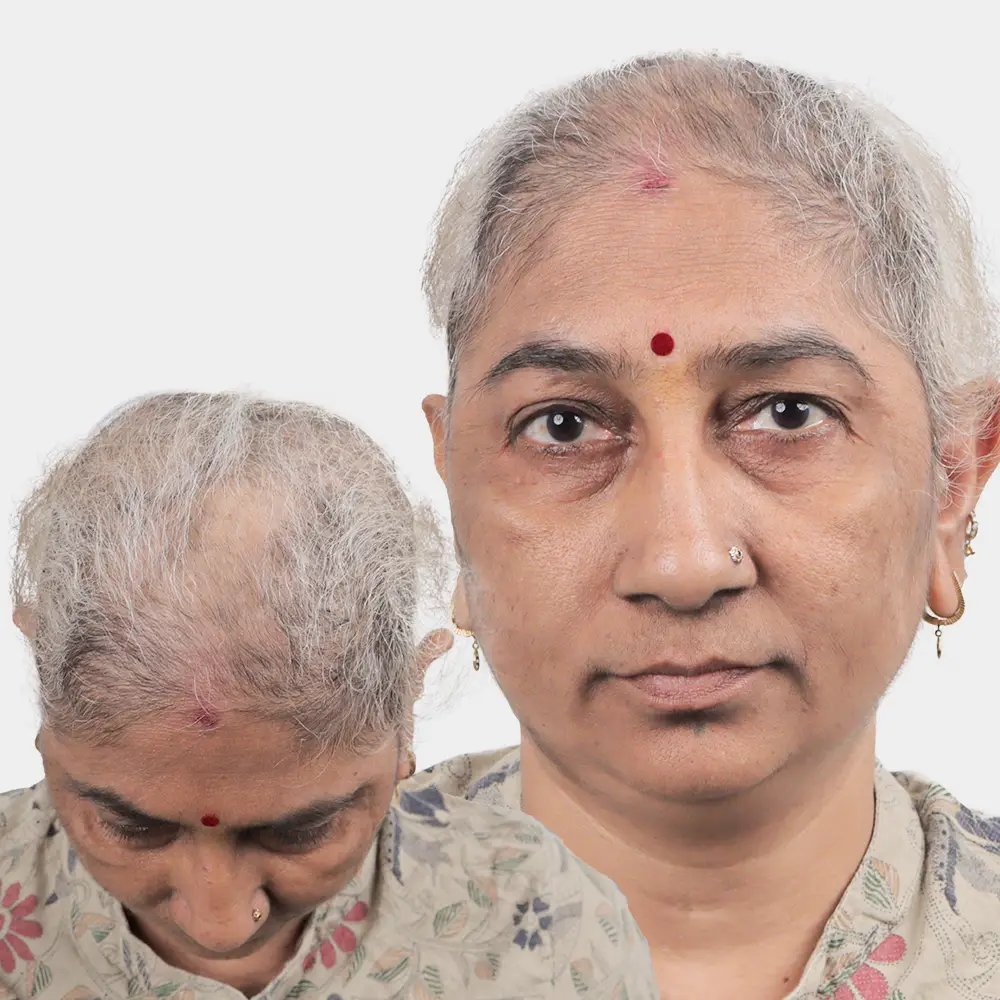
Although highly prevalent among patients of African descent,38 can present in any individual as a result of repetitive or extended tension on the hair follicles. It often is linked to specific hairstyling practices, such as the installation of tight weaves or braids (especially in chemically relaxed hair) and styling of the hair in tight ponytails or buns.
Often abbreviated as TTM is a mental health disorder where a person compulsively pulls out or breaks their own hair. This condition falls under the classification of obsessive-compulsive disorder (OCD).
Few Other Types of Hair Loss are
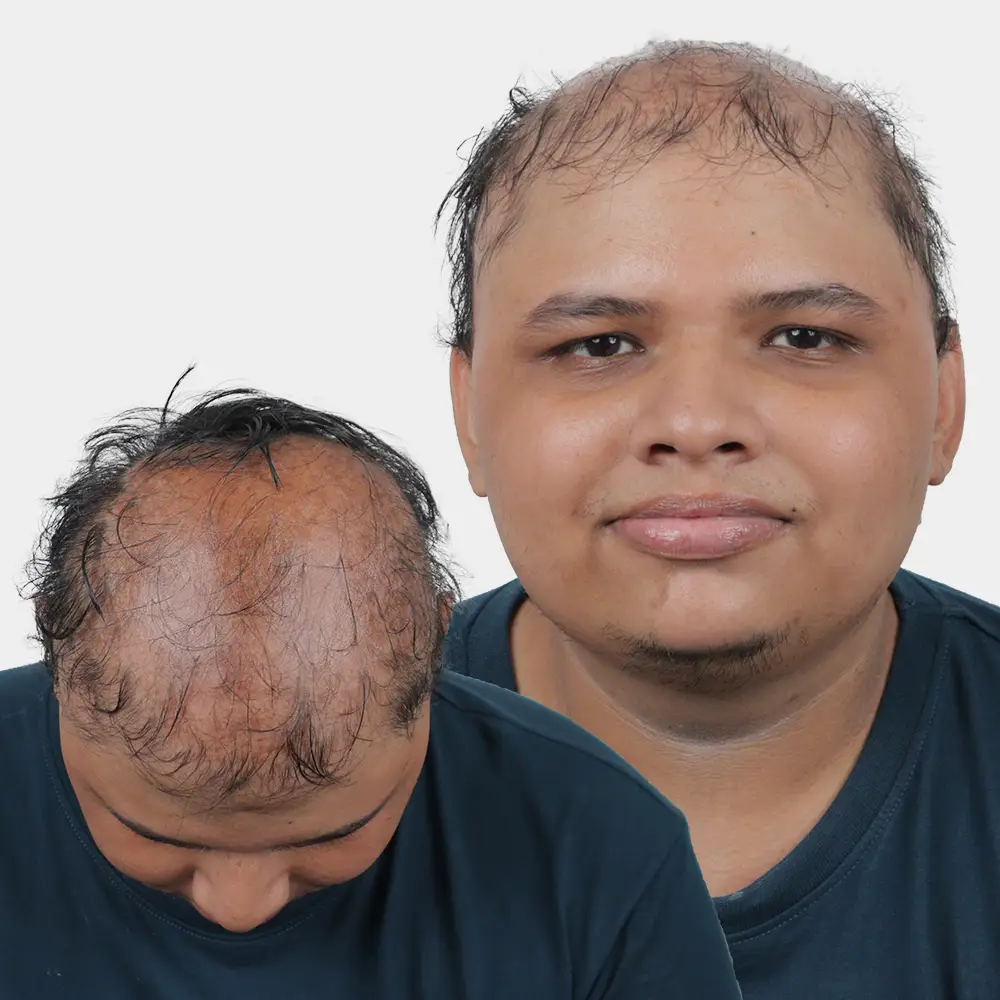
Patients Feedback
Positive Feedback From Our Patients From All Over The World



